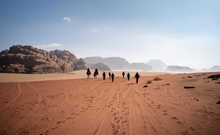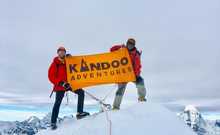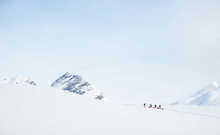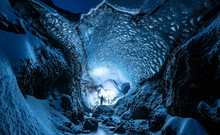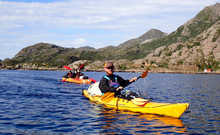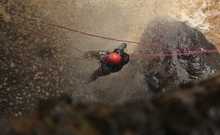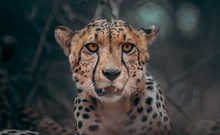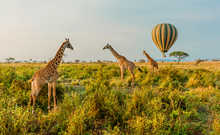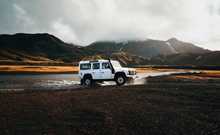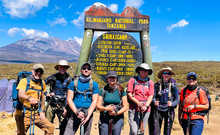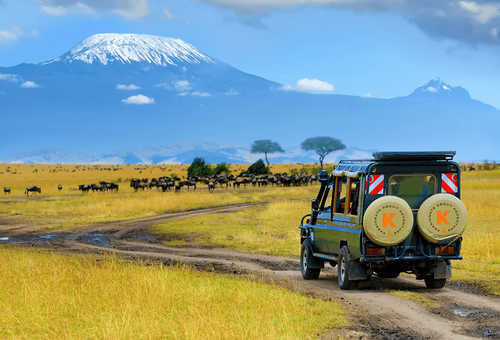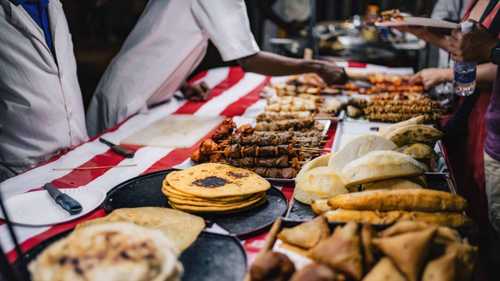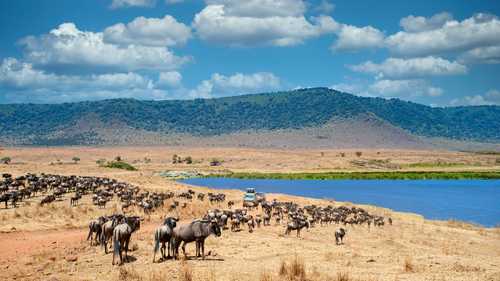
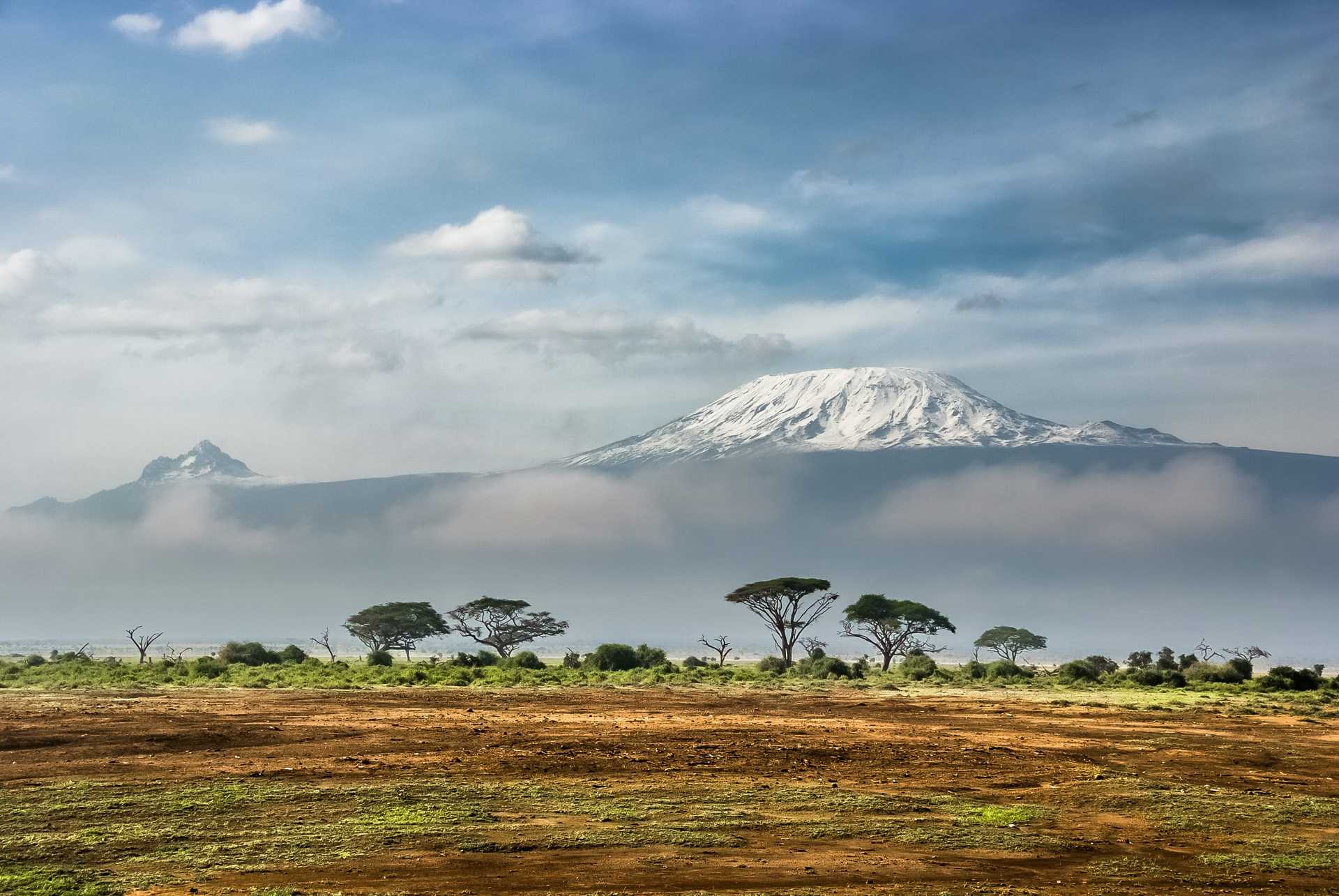
Tanzania Travel Guide
Tanzania
-
Do US citizens need a visa for Tanzania?
Having a visa is a requirement for US citizens visiting Tanzania. You will have to apply for a visa before you plan on visiting Tanzania, or you will simply need to pay for a visa upon arrival at Kilimanjaro airport. -
Can you get a Tanzania visa on arrival?
You will receive your Tanzania visa upon arrival from the entry port at the Tanzanian airport. We recommend applying for a visa online ahead of time, either online or at a Tanzanian embassy, to reduce your wait time at the airport. -
How long does a Tanzania visa take?
It usually takes around ten days for a Tanzania visa application to be processed. It will then take a little more time to receive approval for your visa, upon making payment, before you can start your travels in Tanzania. We would recommend applying for your visa a few weeks in advance to ensure it has been processed in time. -
Can I get an e-visa for Tanzania?
It is possible to get an e-visa for Tanzania if you are required to have a visa. In order to receive an e-visa, you will be required to fill out an online form, make the proper payment(s), and submit your application online. You will have to wait at least ten days for your application to be processed and approved. -
What shots do I need for Tanzania?
Strongly Advised Vaccinations- Hepatitis A: This can be spread via contaminated food and water.- Tetanus: Tetanus is often present in the soil, and can contaminate open wounds easily. Tetanus vaccine should be used every ten years if travelling.- Typhoid: Typhoid can also be spread via contaminated food and water, and poor hygiene.- Diphtheria: This potentially fatal disease is spread mainly via spit, but occasionally through contact with cuts on the skin.- Yellow Fever: This can be contracted by being bitten by a contaminated mosquito. This vaccination is not essential if you are arriving directly into Tanzania. You do need it though if you plan to arrive through any country that is subject to yellow fever. Simply stopping over at an airport in an affected country should not require vaccination, but leaving the airport even briefly would make it necessary.Other Advised Vaccinations- Hepatitis B: This illness is spread via contact with blood or bodily fluids. It is many, many times more virulent than HIV/AIDS. Some 8% of the population of Tanzania are believed to carry the virus.- Rabies: Rabies is spread via contact between the saliva of any infected animal and an open wound (including bites, but also licking existing wounds). Rabies is fatal unless treated, and treatment of an unvaccinated rabies patient can be very difficult in many parts of Tanzania.- Tuberculosis: TB is generally contracted through inhaling airborne sputum.- Cholera: Cholera is spread via contaminated food and water, and poor hygiene.- Measles: This disease is spread through inhaling sputum. -
Do you need a yellow fever vaccination for Tanzania?
This vaccination is not essential if you are arriving directly into Tanzania. You do need it though if you plan to arrive through any country that is subject to yellow fever. Simply stopping over at an airport in an affected country should not require vaccination, but leaving the airport even briefly would make it necessary. -
Is Zika virus in Tanzania?
The Zika virus has been found in Tanzania. Of 533 people tested, 15.6% were positive with the virus.
Climbing Kilimanjaro
-
Do you need malaria tablets for Kilimanjaro?
You will not run into malaria while on the mountain. However, you will be in territory that houses malaria before and after your hike so you should be taking malaria tablets while you’re hiking as a precaution. -
How difficult is it to climb Kilimanjaro?
With over 15 years of experience we have helped more than 12,000 people reach the summit of Kilimanjaro. With top quality equipment and the best guides on the mountain, we have a 95% success rate on every route that we operate. If you are a regular weekend walker with lots of determination we can get you to the top. That does not mean that it is not an incredibly tough challenge. You will be walking every day for at least 6 days for an average of 6-7 hours a day with a lengthy day of up to 18 hours on your summit push. You need to be in good physical fitness to achieve this, however mental strength also important as a good degree of determination will be required. -
How many days does it take to climb Kilimanjaro?
The shortest route Kandoo runs as standard is the 6 day Marangu Route. It is possible to climb over 5 days but the shorter climbs have a much lower success rate. Remember it is a long way to travel and a lot of money to spend to not reach the summit. We recommend that you take at least 7 days to give yourself a really good chance of reaching the summit safely. Our most popular routes are the 7 day Machame Route and 8 day Lemosho Route. -
How fit do you need to be to climb Kilimanjaro?
One question we get asked a lot is 'how fit do I need to be to climb Kilimanjaro? Whilst a high level of fitness will make the climb a lot easier it by no means requires super human fitness. That being said, a solid Kilimanjaro training plan will allow you to better prepare for the climb and give you more opportunity to enjoy yourself when you're on the mountain. What all successful climbers share though is a real Kandoo attitude and that means high levels of grit and determination. Summiting Kilimanjaro is a long slow grind but provided you have the determination to do just one more step even when you are tired we can help you get to the top.
If you are comfortable walking for 6-7 hours with an ascent of 1000m then you are certainly fit enough to succeed on Kilimanjaro. The bare facts about the climb are that you will probably be walking 6-7 hours per day with a rough ascent each day of 1000m. This will culminate in a lengthy 15-18 hour day on your summit push.
-
What is the success rate climbing Kilimanjaro?
The success rate varies hugely by route and by operator. Success rates reported by the Park vary from below 50% on the shorter routes like Marangu up to 85-90% on 7 day and longer climbs. Our success rate on climbs of 7 days or longer is 97%. We get such a high success rate with great preparation, great guides and carefully managed itineraries. And of course clients with grit! -
What training do you recommend to prepare for my climb?
We always answer this question by saying you should try and get out and do as much hill-walking as you can. Nothing prepares your body better for climbing Kilimanjaro than some weekends doing long walks of 7-8 hours. For more in depth training advice see our Kilimanjaro Training Guide. -
What are the toilets like on Kilimanjaro?
The public toilets on Kilimanjaro are horrible drop loos used by many and rarely cleaned. On our trips, however, we provide our own toilet, enclosed within the privacy of a toilet tent. This is for the sole use of our group and is kept impeccably clean and hygienic by our crew. -
How well do you treat your crew? Are you a member of KPAP?
We treat all our crew and guides really well. This is recognised by KPAP ( the Kilimanjaro Porters Assistance Program).KPAP do great work to ensure porters are treated fairly on the mountain. This is not just about wages, but food, clothing, tents and tipping policy. Sadly far too few Kilimanjaro operators are members of KPAP. We have been a leading member of KPAP since we started on Kilimanjaro. There is a KPAP porter on all our climbs to ensure that our treatment of porters always is up to high standards. -
What is altitude sickness?
Altitude sickness (often just called AMS) is caused by climbing to altitudes where the air pressure is much reduced. By the time you have reached the summit of Kilimanjaro air pressure is down to 49% of what it is at sea level. The first effect of this is that every lungful of air contains only half the amount of oxygen it would normally have. This makes any physical exertion very hard work. Slowly, slowly is the key. The second and most dangerous effects of low pressures are on the parts of the body where fluid and air meet. The two most important are in the skull and lungs. With low air pressure fluid gets into the lungs and the gap between the brain and the skull. In the lungs this can cause a pulmonary edema (HAPE) which displays symptoms similar to pneumonia, where your lungs fill with water. In the brain it can cause a cerebral edema (HACE) which causes extremely bad headaches leading to loss of sight. Both of these can be fatal if left unnoticed and untreated. The good news is that we plan our ascents very carefully to reduce the risk of you getting AMS, our guides are well trained in how to prevent altitude sickness and evacuation processes are in place should you need to descend from the mountain. -
What kit will I need?
You can find a full list of required clothing and equipment on your trip dossier and on the trip page on our website under 'Details' > 'Equipment & Clothing'. We have 4 season sleeping bags (rated to -20 Deg C) and trekking poles available to hire from our team in Moshi. -
What is the difference between an open group climb and a private climb?
Private Kilimanjaro climbs are your own personal tailor-made adventure. They give you total flexibility and the highest chance of success. Choose your date, route and any of our tailor-made options. Perfect for a group of friends, a charity group, or perhaps for a couple looking to celebrate a special birthday or anniversary.
If you want the company of others while you climb Kilimanjaro then an open group is perfect for you. Our group climbs run every week during the main climbing season from June - October and December - March. They are limited to a maximum of 12 climbers to make sure you get the best chance of summit success.
-
What is the difference between the Kilimanjaro routes?
The main differences between the routes to climb Kilimanjaro are the scenery they pass through and how many days they take to complete.If you are looking for a range of scenery and interest on your climb then we would recommend the 8 day Lemosho Route - this begins in the rainforest where some of the region’s most unique wildlife can often be seen. The route then continues up through the arid plateau where you see the rising tower of Shira Cathedral before heading into the alpine tundra.If time is of the essence or you are looking for a slightly cheaper alternative then our 6 day Marangu Route will be your best bet - approaching Mount Kilimanjaro from the southeast, it uses the same ascent and descent route, staying in dormitory style huts along the way.And for those wanting a quieter route with less traffic, the Northern Circuit or Rongai Route, both offer a less trodden ascent up Kilimanjaro. -
What will the food be like?
The food our cooks prepare on Kilimanjaro is nothing short of incredible. The meals they can create on a mountain are amazing and everybody raves about our food. This is really important as keeping yourself hydrated and ensuring you eat well is one of the most important factors in success. If you have special dietary requirements or are a vegetarian then just let us know when you book so that we can be sure to have a suitable menu planned. -
What are your tents like?
We use only the very best high altitude mountain tents, Mountain Hardwear Trango 3, to ensure you stay warm, dry and comfortable on your Kilimanjaro climb. Please bear in mind, these are proper mountain tents, designed to cope with extreme conditions so don’t expect to be able to stand up and walk around inside! -
What tips do you recommend?
We are leading members of KPAP, the Kilimanjaro Porters protection group and comply fully with their recommendations about tips. Depending on the group size recommended tips are between $200-300 per person. These are simply recommendations: if for any reason you are not happy with the service, provided you are not required to pay. -
How will I wash during my climb?
Every morning and evening you will be provided with a bowl of hot water for washing. As well as this, we strongly recommend a good supply of baby wipes for cleaning hands during the day. Also when it gets very cold higher on the mountain you may find a baby-wipe wash is more convenient than using water. Remember though that whatever you take up the mountain has to come down so you will need to dispose of wet wipes appropriately in the rubbish bags provided. -
Is there an advantage to climbing Kilimanjaro on the full moon?
This is really a matter of personal preferences. On a full moon there is lots more light and the route and path to the summit are much clearer. Some people prefer this, some prefer to get their head down and just keep plodding. Of course when there is a full moon there are almost no stars visible so if you want a great night sky give the full moon dates a miss. -
Do you organise trips to climb Kilimanjaro for charity?
If you are climbing Kilimanjaro for charity, please let us know and we can share this across our social media to help you drum up some donations. We support lots of climbs of Kilimanjaro for charity, however we do not organise charity specific climbs or provide free climbs for participants raising money. -
What do you do to support the local community?
As one of the very few non-Tanzanian companies that actually operate its own climbs we are closely involved in many aspects of supporting the local community. This extends from promoting porter welfare through KPAP, to supporting a local porter's charity, to being active members of the Leave No Trace and Travellers Against Plastic organisations. For more information on how we support the local communities in areas we work in visit the 'Our Sustainability' page on our website. -
Can I climb without porters and guides?
In a word, NO. The National Park Authority do not allow anyone on the mountain without qualified guides and they mandate strict minimum ratios of guides to clients which roughly work out as 1 guide for every 3 people. Porters are optional but unless you are super-fit and happy to alpine camp for 7 days living on dried food don't begin to think about it. We provide 3 porters per client to carry everything you need to have a comfortable enjoyable climb. -
What vaccinations will I need?
Strongly Advised Vaccinations- Hepatitis A: This can be spread via contaminated food and water.- Tetanus: Tetanus is often present in the soil, and can contaminate open wounds easily. Tetanus vaccine should be used every ten years if travelling.- Typhoid: Typhoid can also be spread via contaminated food and water, and poor hygiene.- Diphtheria: This potentially fatal disease is spread mainly via spit, but occasionally through contact with cuts on the skin.- Yellow Fever: This can be contracted by being bitten by a contaminated mosquito. This vaccination is not essential if you are arriving directly into Tanzania. You do need it though if you plan to arrive through any country that is subject to yellow fever. Simply stopping over at an airport in an affected country should not require vaccination, but leaving the airport even briefly would make it necessary.Other Advised Vaccinations- Hepatitis B: This illness is spread via contact with blood or bodily fluids. It is many, many times more virulent than HIV/AIDS. Some 8% of the population of Tanzania are believed to carry the virus.- Rabies: Rabies is spread via contact between the saliva of any infected animal and an open wound (including bites, but also licking existing wounds). Rabies is fatal unless treated, and treatment of an unvaccinated rabies patient can be very difficult in many parts of Tanzania.- Tuberculosis: TB is generally contracted through inhaling airborne sputum.- Cholera: Cholera is spread via contaminated food and water, and poor hygiene.- Measles: This disease is spread through inhaling sputum. -
What happens if I need to descend?
As a condition of our public liability insurance we have a tried and tested Evacuation Procedure in place should you need to descend due to injury or illness. Depending where you are on the mountain and your condition, this may involve being supported to walk down with a porter or guide's assistance, being transported on a mobile stretcher, using a 4x4 or a helicopter rescue. -
What travel insurance do you recommend?
There are a number of specialists who provide Kilimanjaro travel insurance. We are not qualified to recommend specific insurance policies, however guests who have travelled with us before have used companies such as Snow card, Dog Tag, Campbell & Irvine and World Nomads. Whoever you arrange insurance with, you must be sure it covers you to trek to an altitude of 6,000m. -
Are there any age restrictions on climbers?
Kilimanjaro Park Authority do not allow any climbers on the mountain younger than 12 years of age. There is no maximum - our oldest client who summited was 75. You should be aware though that we do not allow children younger than 16 to join an open group. This is primarily because we feel that children under 16 require more personalised care that is only available on a private trip. For children aged 16-17, an adult over the age of 18 must also be accompanying them on the trip. -
What is the best way to get to Kilimanjaro?
For climbers based in the UK or the US, it is best to fly to Kilimanjaro International Airport (JRO). KLM flies to JRO from all of the major UK airports, and many of the larger US international airports as well. UK flights tend to leave early in the morning, transfer at Luchthaven Schiphol, Amsterdam’s main airport, and arrive at JRO late that same evening.All of our tours begin at a town called Moshi, known as the gateway to Mount Kilimanjaro. Moshi is only 25 miles from Kilimanjaro International Airport by car. Transport is generally available at any time, including the late evening or early morning, and takes approximately three quarters of an hour.It is wise to plan a rest day after such a long flight to recover and prepare yourself and your kit for the climb, rather than planning on hitting the mountain the next morning.Some UK climbers choose to fly into Nairobi via Kenyan Airways or British Airways. These flights are only available departing from Heathrow in London. Climbers arriving in Nairobi generally book a transfer flight to Kilimanjaro international Airport via Precision Air, Air Kenya, Air Tanzania or Ethiopian Airways.We do not recommend flying through Nairobi, because Nairobi Airport is often uncomfortable, and transfer times can sometimes be very long. It also has a reputation for poor baggage handling and delays in transferring baggage between flights.Turkish Airlines, Air Emirates and Qatar also fly into JRO, but these flights often involve long delays and flights leaving late at night for UK travellers. However, climbers travelling from the US often report better service and experiences flying with Turkish Airlines, Air Emirates and Qatar, so we do recommend these flights from North America. -
Where is Mount Kilimanjaro?
Kilimanjaro is in Tanzania and sits right on the Northern border with Kenya. The nearest airport is Kilimanjaro International Airport (JRO) and the nearest town is Moshi. -
Will I be able to get a mobile signal on Kilimanjaro?
Yes most of the time but don't plan on 4G. And don't be surprised that when you drop into a valley there will be deadspots. -
Which famous celebrities have climbed Kilimanjaro?
One of the most publicised celebrity climbs of Kilimanjaro came in 2009 when a team of 9 celebrities attempted to conquer the roof of Africa for Comic Relief. The celebrities climbing were Alesha Dixon, Gary Barlow, Ben Shepard, Denise Van Outen, Cheryl Cole, Chris Moyles, Fearne Cotton, Kimberley Walsh and Ronan Keating. They took the 8 day Lemosho route and, amazingly, every single one of them summited! However, it was reported that nearly every climber suffered some form of altitude sickness along the way. The aim of the climb was to raise awareness and money for Malaria which is a huge killer in Tanzania. The team raised just shy of a million pounds.
Going on safari in Tanzania
-
What is the best safari in Tanzania?
We offer a 7 Day Group Safari that includes the Tarangire region, Lake Manyara, the Serengeti and the Ngorongoro Crater. If you plan to go during the right time of the year, you will also be able to witness the annual wildebeest migration. As well as offering you a front row seat to some of the most incredible animals in Africa, our group safari allows you to meet like-minded individuals and embark on the journey together.If 7 days feels too long, then we also have 2-6 day options which are bookable on a private basis. Get in touch with one of the team to discuss your requirements. -
How much does a safari in Tanzania cost?
There are a lot of features that factor into the cost of a safari in Tanzania, such as lodging and varying group rates. A mid-range budget lodge for a Tanzanian safari would cost somewhere around $320 per person per day, while a more private and luxurious lodge with extra features and accommodations would cost around $350-$400 per person per day. -
Is it safe to safari in Tanzania?
Organized safaris in Tanzania are absolutely safe; in fact, most Tanzanian safaris occur without any reported issues. Overall, Tanzania is a safe country to visit and can provide you and your family with an amazing safari experience. -
Where can you go on safari in Tanzania?
There are plenty of amazing safaris located within Tanzania. The Serengeti National Park, the Ngorongoro Crater, Lake Manyara, Taragire, Zanzibar and the Ruaha National Park are among some of the best locations in Tanzania to go on a safari. -
What is the best time of year to go on safari in Tanzania?
Late June to October, otherwise known as the Dry season in Tanzania where wildlife viewing is at an all-time high, is the best time of year to go on a Tanzanian safari. Other times would be late January to March when you can witness the wildebeest migration, and June to July when the national parks dry out and large numbers of animals congregate around the watering holes.
